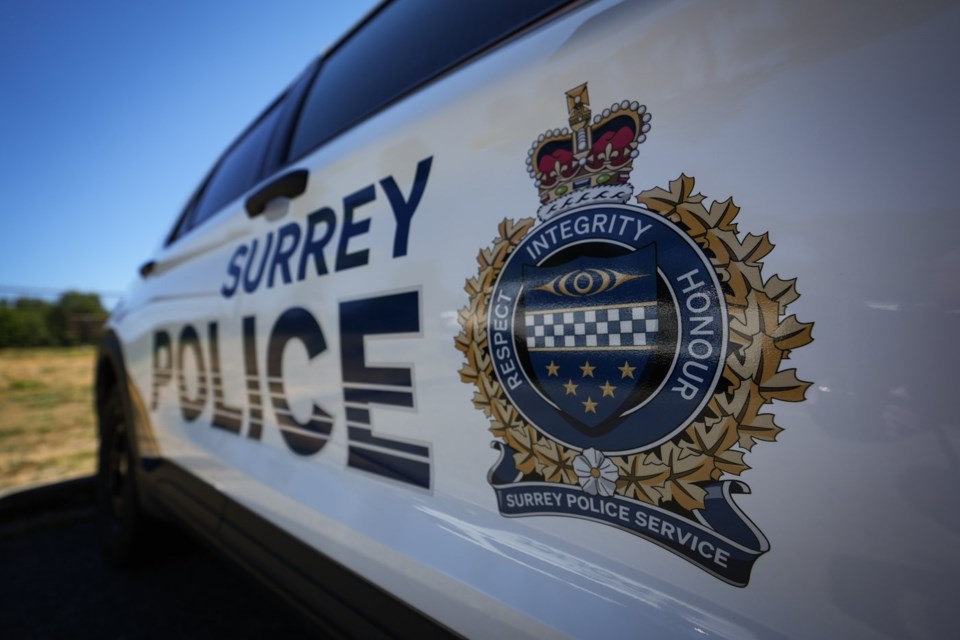
VANCOUVER — The B.C. Supreme Court has quashed a bid by the City of Surrey to halt a transition to a municipal police force, with the judge ruling the province has a right to exert authority over municipalities.
VANCOUVER — The B.C. Supreme Court has quashed a bid by the City of Surrey to halt a transition to a municipal police force, with the judge ruling the province has a right to exert authority over municipalities.
Justice Kevin Loo said in the judgment Thursday that this authority is valid even if it nullifies “a mandate given by voters,” referring to the election of Surrey Mayor Brenda Locke who campaigned to halt the transition away from the RCMP.
Loo also said the government is “entitled to enact legislation even where its intention is to overcome a legal proceeding,” as was the case when the province enacted the Police Amendment Act to force Surrey to complete the transition.
“(In) my view, the City’s argument that the legislature is not entitled to specifically nullify a mandate given by voters is inconsistent with the Province’s general authority over municipalities,” the decision said.
Public Safety Minister Mike Farnworth said the ruling signals that the dispute is over, and it’s time to come together and complete the switch to the Surrey Police Service.
Farnworth said he hopes Surrey officials including Locke work with the RCMP and B.C. government to complete the transition as smoothly and quickly as possible.
Locke said in a briefing the city was still looking over the court’s decision to consider its next steps, but noted the result “did not go the way that we in Surrey had hoped it would.”
But she said the court decision confirmed that a transition to a municipal police force would be more expensive than if the city retained the RCMP.
“Frankly, that massive cost increase will result in some very difficult choices to be made ahead, not only for taxation but for other infrastructure projects as well in our very rapidly growing city,” Locke said.
The city had sought a judicial review of the minister’s decision to order the city to finish the transition, claiming the province overstepped its authority and couldn’t force the city to continue the process without providing adequate funding.
A lawyer for the B.C. government told a court hearing earlier this month that the minister’s only role was to determine what would be safe, regardless of cost, when he ordered the city to continue the transition in July 2023.
The municipal force is set to become Surrey’s police of jurisdiction on Nov. 29, and the province has set aside $150 million to assist with the transition, Farnworth said.
Chief Cst. Norm Lipinski with the Surrey Police Service issued a statement applauding Thursday’s court ruling, saying it ends an 18-month dispute that had been “plagued with delays and misinformation” by those who oppose the change.
He said the City of Surrey made the decision to switch to a municipal force in 2018 and the province approved the move in 2020, affirming it again in 2023. Now, he said, the decision has also been validated by the B.C. Supreme Court.
“It is past time for us to start working together to expedite the policing transition for the benefit of the RCMP and (Surrey Police Service) employees, the residents of Surrey, and public safety in this great city,” Lipinski said.
The Surrey Board of Trade issued a statement saying it was “deeply disappointed” with the judgment given the “significant” financial implications for the city’s businesses.
“We are frustrated that there will be higher taxes in Surrey, especially for businesses,” board of trade CEO Anita Huberman said in the statement. “This enormous tax burden will make Surrey more expensive to live, work, and play in.”
Farnworth said Thursday he hadn’t yet spoken with Locke, who was elected in 2022 after campaigning on the promise of halting the transition and keeping the Mounties.
Lawyers for the city had argued earlier this month that the province “nullified” voters’ Charter right to freedom of expression in ordering the transition to continue because Surrey residents had elected Locke on that pledge.
Farnworth said he expects the city will review Thursday’s ruling, but “the bottom line” is the transition is happening and it’s in the city’s interest to get on board.
“I think what’s important is the people of Surrey want this over, and this decision certainly indicates that, you know what, it’s over,” he told a press conference in Vancouver.
It “would be great if (city officials) were at the table, and I think that’s what the residents of Surrey would expect from the council,” said Farnworth, who is also B.C.’s solicitor general.
Asked about the decision at an unrelated news conference, Premier David Eby said it confirms that the province has the authority to direct Surrey to complete the transition the city had started before the 2022 municipal election.
He said the ruling would be a “huge relief” for people in Surrey.
“The longer this transition takes, the more it costs,” the premier said, adding the province has committed to helping Surrey cover those costs.
“We can partner, get this done quickly, and make sure that the costs are minimized, because there are so many other challenges that the City of Surrey faces,” Eby said, adding it’s among the fastest-growing communities across the country.
This report by The Canadian Press was first published May 23, 2024.
Brenna Owen and Chuck Chiang, The Canadian Press



